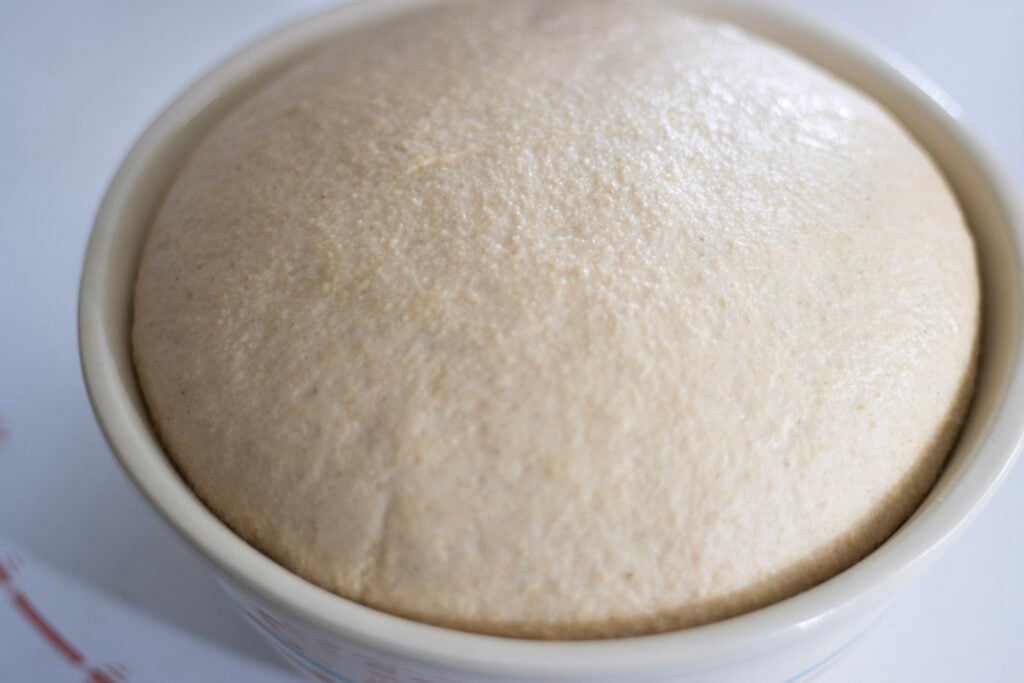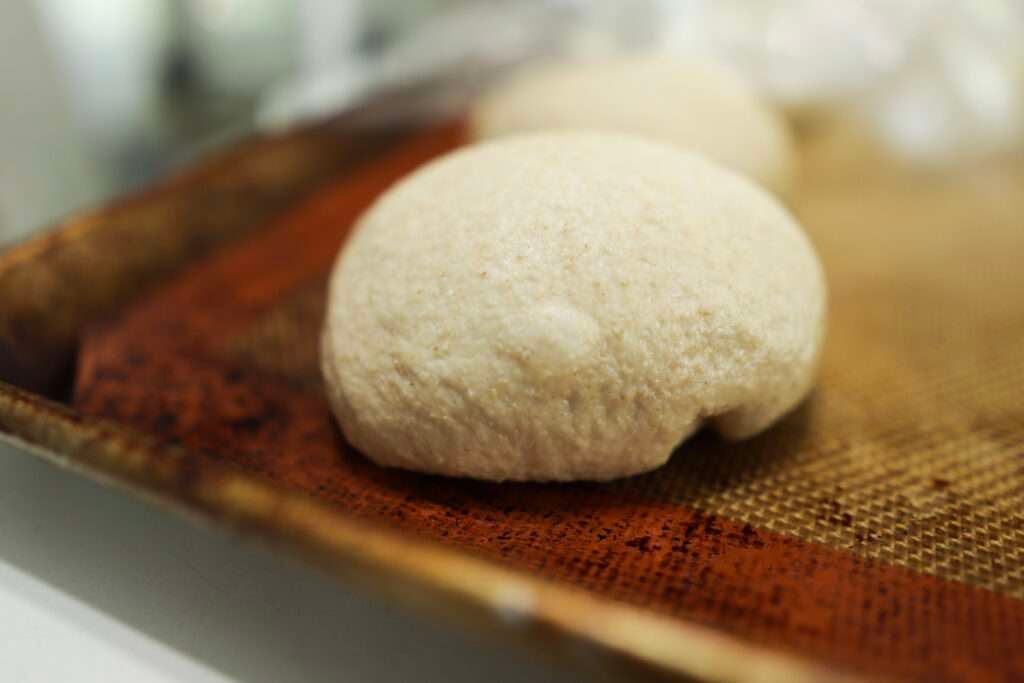Is Sourdough Healthy? | Sourdough and Healthy Eating
With Sourdough being all the rage in recent years, the question comes up, Is Sourdough actually healthy? To answer the question, we need to dig into what sourdough actually is and what it does to bread dough during the process of making bread.
To dig into this topic, I want to breakdown what sourdough is and what the process of making sourdough bread actually does to the dough.
I also want to cover the potential health benefits of sourdough bread and why it may be the best choice for you and your family.
This post may contain affiliate links. I may make a small commission on sales at no extra cost to you

What is Sourdough?
In simple terms, sourdough is yeast. Unlike commercial yeast, sourdough is wild yeast and lactic acid that is captured during the sourdough fermentation process.
The wild yeast is found on the flour, in the air, and on the utensils you use.
The lactic acid bacteria builds up during the process and gives sourdough it’s signature tang.
This long fermentation process is a process where sourdough breaks down phytic acid making it a healthier choice of bread.
If you are new to Sourdough and want to make your own Sourdough starter, click here: How to make a sourdough starter

The Fermentation Process
The process of making a sourdough dough starter is quite simple. You need only flour and water and patience.
The type of flour you use doesn’t matter a great deal. It’s a process of allowing the flour and water to capture the wild yeast over several days to activate the starter.
Once a sourdough starter is active, it will rise the dough. The process of rising dough with sourdough starter is called fermentation.
You allow the dough to rise slowly making good use of the healthy bacteria in the sourdough starter.
During this fermentation process, the sourdough starter feeds on the flour of the bread recipe and builds up carbon dioxide which in turn builds up the air bubbles that makes the bread light and airy.
Unlike regular bread made with yeast, this process makes a bread that is said to have a lower glycemic index.
Here is a post that addresses this issue: https://traditionalcookingschool.com/food-preparation/sourdough-bread-low-glycemic-askwardee-035/
Wardee covers this topic at length in the above post and it’s effects on blood sugar levels.

What is Fermentation?
Fermentation is the process of building good bacteria and yeast by feeding the sourdough starter.
This is done each time you feed the starter and allow it to become active and bubbly. It is also done when you add a little starter to a bread dough recipe and allow the starter to feed on the flour in the dough.
The fermentation process is also used in making yogurt, kombucha, milk kefir, and sauerkraut.

Is Sourdough Healthy?
The good news is that the process of making homemade sourdough bread does make a better choice than regular white bread made with conventional yeast. Let me explain.
When you allow a sourdough recipe to ferment for many hours, the process breaks down the gluten and in a sense pre-digests the dough.
This can make the bread more tolerable for those who have a sensitive stomach after eating wheat bread.
This process also makes the nutrients more available to the body when consumed. Long fermented sourdough bread is a superior option over grocery store bread.

Now, for maximum benefits you need to:
- Let the dough rise or ferment for at least 12-24 hours.
- Ideally use freshly milled flour. Since the process makes the nutrients more available, you want to use a flour that is high in vitamins and minerals. Store bought all purpose flour has been sifted of the bran and germ which hold this nutrition. Sourdough bread made with whole grains is the healthiest sourdough bread option.
You may be wondering if Sourdough is gluten free. The short answer is no but here’s an article I dedicated to this topic: Is Sourdough Gluten Free?
It is important to note that Sourdough is still not an option for those with Celiac Disease. Those with this condition should never consume wheat based products without a doctors recommendation and care!

What kind of flour is best when making Sourdough Bread
I always recommend using freshly milled flour for the many health benefits and the flavor it imparts to the bread. Whole wheat sourdough bread has much more flavor than other types of bread.
This is the grain mill I have been using for years: Nutrimill Grain Mill
However, I understand that this may not be an option for all and white flour may be your flour of choice.
Here are a few things to consider when deciding which flour to use in your sourdough bread:
Is it Bleached?
Bleached flour can be counterproductive in sourdough. The process of bleaching can inhibit the growth of the bacteria and yeast in your sourdough recipe.
Is it Organic?
Certified organic flour will be free of pesticides and is an overall great choice for bread products.
Is it All Purpose or Bread Flour?
It is important to use flour that is not self rising. Self rising flour has added leavening agents and may not behave well in sourdough bread applications.

In conclusion, sourdough bread is healthier than quick rise breads. The fermentation process not only adds good bacteria to the bread, but, also breaks down gluten and makes nutrients more easily digested.
The process of making sourdough bread also adds tremendous flavor! There is nothing quite like a fresh slice of sourdough bread with a dab of grass fed butter on it!
Add in some freshly milled flour and you have a “super” bread of sorts. Full of flavor and nutrition. We routinely consume whole wheat bread made with sourdough and find it to be the most filling and flavorful.
Sourdough that has been fermented for at least 8 hours and up to 24 hours is best. If you have wheat or gluten sensitivities, fermenting closer to 24 hours will be the most digestible bread.
Yes, sourdough continues to develop flavor as a result of the fermentation process. The longer and cooler the ferment, the more sour. The warmer and quicker the ferment, the less sour it will be.






Hello,
I am new to your site and I also getting into ancient grains. I watched your video on your spelt sour dough starter. I just bought kamut and wonder how your starter turned out with your sandwich bread? Please fill me in since I have two sister in laws who have done starters with discarding but your no discard process sounds like my cup of tea but only if you recommend what you think about the use of ancient grains.
Thank you,
Tish
Looking forward to getting your newsletter